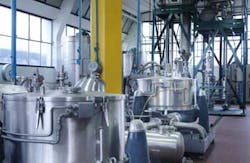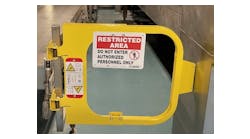U.S. President Barack Obama has instructed federal agencies to start a probe into safety rules at chemical plants as part of a project intended to prevent incidents similar to the deadly blast at the fertilizer plant in West, Texas in April.
On Aug. 1, Obama signed an executive order asking agencies to take steps to improve safety at facilities that store and handle dangerous chemicals, such as ammonium nitrate, the substance believed to have caused the Texas explosion. Agencies will also have to decide whether chemicals that have so far been exempt from oversight should be included in federal regulation, the Associated Press reported.
The U.S. chemical industry as a whole and all the facilities that produce, store and use chemicals are undoubtedly important for the nation's economy but their operations are associated with risks that need to be properly addressed to ensure the protection of the public, the White House said in a document presenting the order.
As part of the review, the president has asked federal agencies to develop a plan outlining measures to improve chemical plant safety within 90 days. This task has been delegated to a newly established Chemical Facility Safety and Security Working Group, which consists of senior officials from several federal agencies. The group is led by the secretaries of Homeland Security and Labor and the administrator of the Environmental Protection Agency. It will be responsible for the coordination and oversight of the entire project.
One of the main tasks delegated to the group is to improve cooperation with state and local regulators on the one hand and to enhance cooperation between federal offices responsible for overseeing chemical and safety issues on the other. The panel's primary goal will be to provide the industry with modernized and reliable standards for the storage and security of hazardous chemicals.
RELATED: Chemical accidents pose greater risk to public than terrorist attacks
Even though the investigation of the explosion in Texas is still under way, the conclusion from a preliminary report sent in June to the Senate Environment and Public Works Committee stated that regulations applied at fertilizer plants at present are not strict enough and are far more lenient in comparison to similar regulations in other countries.
The report also found that various U.S. agencies have failed to act adequately to prevent such incidents from happening by lax enforcement of safety regulations. During the investigation of the West explosion, it emerged that the facility had not been inspected by the Occupational Safety and Health Administration since 1985.
However, experts believe that industry groups are likely to oppose the implementation of any additional regulations. Recently, the chief security officer at Dow Chemicals, Timothy J. Scott, spoke to a House subcommittee explaining that safety was of paramount importance for the chemical industry but he emphasized the fact that existing regulations were good enough if they were enforced properly. Scott added that in order to improve safety in the U.S. chemical industry, current rules should be implemented consistently and fully and agencies should be taking their duties seriously, including when it comes to training their staff, raising awareness among communities and enforcing existing rules.


